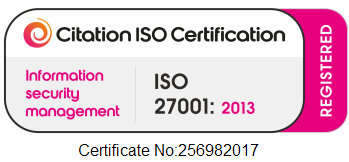What Are Digital IDs & How Do They Work?
Talks about the new digital ID checks are starting to gather momentum as the April 6 2022 deadline continues to get closer.
Soon, the Disclosure and Barring Service will be providing a new way to carry out identity checks, offering digital ID checks as an alternative to manual ones as the government continues its plans for implementing digital identities.
In this article, we’ll explain more about the upcoming changes and what they’ll mean for recruiters.
What are digital IDs?
A digital identity is a digital representation of who candidates are, they can be used in person or online, enabling applicants to prove who they are during transactions and interactions. So, rather than showing a physical identity document like a driving licence or passport they can provide the same information digitally.
What’s changing with ID checks?
The Home Office and Disclosure and Barring Service (DBS) are working with the Department for Digital, Culture, Media & Sport (DCMS) as it develops a UK Digital Identity and Attributes Trust Framework.
This joint announcement sets out how the Home Office is working with DCMS and DBS to enable employers to use certified identification document validation technology (IDVT) service providers to carry out digital identity checks on their behalf from 6 April 2022.
For employers, the introduction of digital identity-checking into the Schemes will mean they can assure prospective employees’ identities, using consistent and more secure methods, reducing risk and allowing them to recruit in a safer way.
Benefits
This change will enable checks to continue to be conducted remotely but with enhanced security. The Home Office recognises the benefits the adjusted checking process has brought and are mindful of the shift towards increased hybrid and remote working models.
Making these changes will achieve two things;
- Reduce time and mitigate risk – using IDVT allows candidates to upload images of their personal documents, instead of presenting physical documents to a prospective employer.
- Allow private sector IDVT service providers to become independently certified by UK Accreditation Service (UKAS) accredited assessors to ensure the technology meets the Government Standards and the applicant’s data is protected.
Enabling the use of IDVT for the right to work and DBS checks will help to support long-term post pandemic working practices, accelerate the recruitment and onboarding process, improve employee mobility and enhance the security and integrity of the checks.
The technology utilised across the identity process removes human error in terms of identifying fraudulent documents or inaccuracies and will support the Home Office, DBS and DCMS in driving improvements through their delivery partners.
Share this post and follow us on social media!
Like our blogs? Sign up for our newsletter




Comments are closed